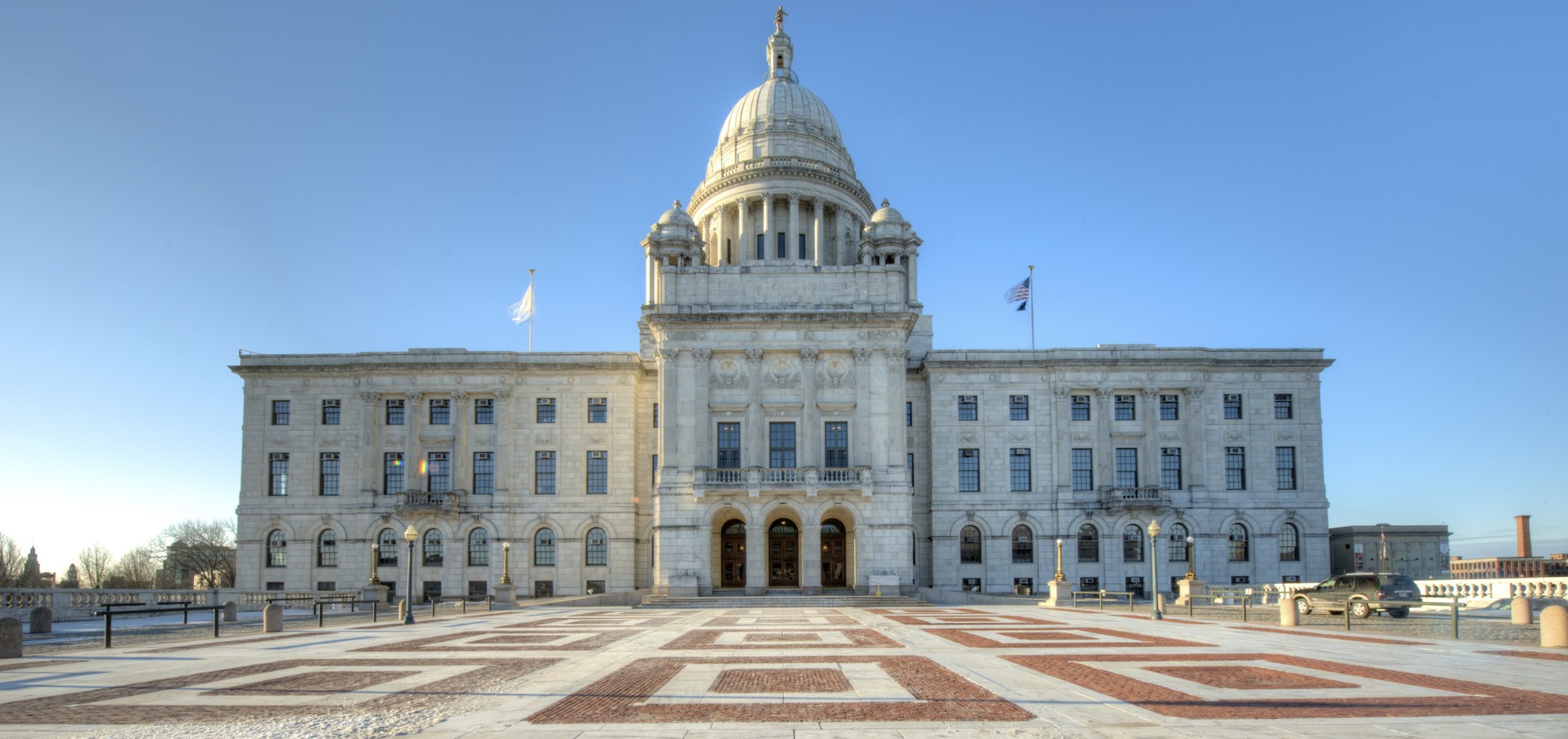A carbon pricing study is finally coming Rhode Island’s way. The much-anticipated announcement comes two years after a bill authorizing a study on the effectiveness of state-level carbon pricing was approved by the legislature and signed into law by Gov. Gina Raimondo (D).
Purpose of the Study
The comprehensive study was supposed to be led by the state’s Office of Energy Resources, but funding for it was not included in the 2018 or 2019 fiscal budgets. Though the bills (S108 / H6305) called for a carbon reduction plan to be submitted to the Governor by December 31, 2017, a study committee was never formed.
The plan must analyze the different ways that revenue from a fee on carbon could be allocated, the economic impacts that carbon pricing could have on businesses and the state economy, and what emission reductions might look like, among other things.
Energize Rhode Island, a coalition of RI environmental organizations that advocate for carbon pricing in the state, grew increasingly frustrated with Gov. Raimondo for neglecting to finance the study. While Raimondo has said she would support federal or regional carbon pricing initiatives, she’s been hesitant to back a state-level price on carbon.
But Energize RI was pleased to see the study finally be financed, issuing the following statement: “The Energize RI Coalition is pleased to see the carbon pricing study move forward. Over the past two years, we have expressed our support and readiness to help the state meet its goals in carrying out a high-quality study that answers questions about the impacts of carbon pricing on our economy and environment. We hope that this study will progress in parallel tracks with the legislative passage of The Economic and Climate Resilience Act of 2019 and implementation of putting a price on carbon economy-wide.”
Funding Announced
On April 24, the Rhode Island Department of Environmental Management announced it had finally secured the $250,000 necessary to fund the study. The money comes from a $4.1 million settlement the state’s attorney general received from the Volkswagen emissions scandal. The state received the money after the automaker installed software in its diesel vehicles that falsified its nitrogen oxide emissions — actual emissions were 40 times higher than reported.
The announcement was made by Janet Coit, the director of the DEM, at a Wednesday meeting of the Executive Climate Change Coordinating Council (EC4) Advisory Board. While it was met positively by the meeting’s attendees, some indicated they wanted fewer studies and more action. For the most part, however, the funding for the study is a step in the right direction for climate advocates.
Ongoing Carbon Pricing Efforts
While funding for the study has been at a standstill since 2017, the carbon pricing movement in the Ocean State continued to move forward. This year, Energize RI once again helped introduced a bill (H5869 / S662) that levies a direct fee on carbon pollution.
The bill imposes a $15 per ton carbon fee, which increases annually until capping off at $50 per ton. Seventy percent of the revenue will be rebated back to ratepayers, while the rest will be invested in environmental initiatives, like energy efficiency and climate resilience projects. Since RI is such a small state, the bill includes a trigger clause that prevents the fee from going into effect unless Massachusetts and at least one other New England state enacts carbon pricing. The bill was ultimately heard in the House on March 21st, where it was recommended for further study.
The good news is that carbon pricing has the support of key environmental figures in the state. The Chairs of both the House and Senate Environmental Committees, Rep. David Bennett and Sen. Susan Sosnowski, introduced and have been advocating for the legislation.
“We feel encouraged by what’s happening,” said Mary Jane Sorrentino, the group leader for CCL Rhode Island.
Now that the state has committed a sizable amount of money to study carbon pricing, RI is one step closer to passing carbon pricing.









